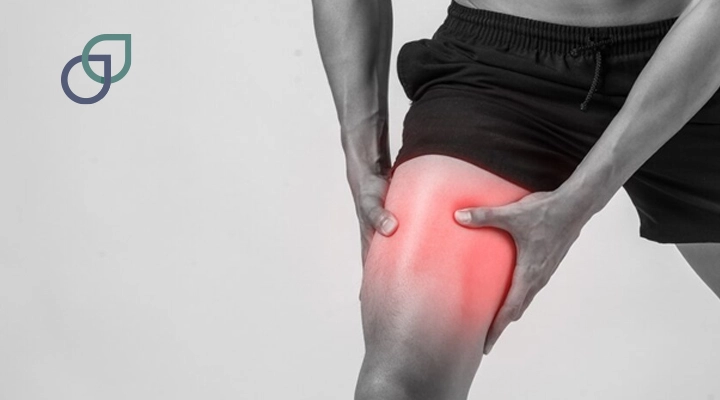Have you ever found yourself experiencing a sudden and excruciatingly painful muscle cramp during a physical activity? Or perhaps woke up in the middle of the night, jolted from sleep by an involuntary muscle spasm? If you’ve experienced any of these muscular discomforts, you’re not alone.
Muscle cramps and spasms can affect anyone, at anytime, disrupting your daily activities and causing pain. But these can be countered – in the world of nutrition, vitamins that can help you get rid of these muscular issues.
In today’s blog, we will dive into the world of muscle magic and explore how we can get help from vitamins for muscle cramps and spasms.
What Are Muscle Cramps and Spasms?
Muscle cramps and spasms are involuntary muscle contractions, typically characterized by sudden, intense pain. They can occur during physical activity, rest, or sleep, and can last from a few seconds to several minutes. While they are usually resolved on their own, recurring or severe episodes can indicate underlying health issues that require immediate attention.
Symptoms of Muscle Spasms And Cramps
- Sudden onset of pain
- Tightness or stiffness in the affected muscle
- Visible twitching or involuntary contractions
- Limited range of motion in the affected area
- Tenderness or soreness after the cramp subsides
Causes of Muscle Spasms And Cramps
Muscle cramps and spasms can be triggered by various factors, including:
- Dehydration
- Electrolyte imbalances (such as low levels of potassium, magnesium, or calcium)
- Overexertion or muscle fatigue
- Poor circulation
- Nerve compression or damage
- Certain medications or medical conditions (such as diabetes or thyroid disorders)
Importance of Vitamins For Muscle Health
Vitamins play a crucial role in maintaining muscle health and function. They contribute to muscle contraction, relaxation, and repair, helping to prevent cramps and spasms. Additionally, vitamins support overall health and well-being, promoting optimal physical performance and recovery.
Best Vitamins For Muscle Cramps And Spasms
- Vitamin D: Known as the “sunshine vitamin,” vitamin D is essential for calcium absorption and muscle function. Low levels of vitamin D have been linked to muscle weakness and increased risk of cramps.
- Magnesium: This mineral plays a key role in muscle relaxation and function. Magnesium deficiency is associated with muscle cramps and spasms, making supplementation beneficial for prevention.
- Vitamin B Complex: B vitamins, including B1 (thiamine), B2 (riboflavin), B3 (niacin), B6 (pyridoxine), and B12 (cobalamin), are involved in energy metabolism and nerve function. Deficiencies in these vitamins can contribute to muscle dysfunction and cramping.
- Potassium: As an electrolyte, potassium helps regulate muscle contractions and nerve impulses. Low potassium levels can lead to muscle weakness and cramps, making adequate intake essential.
- Salt: Sodium is another electrolyte that plays a crucial role in muscle function and hydration. Consuming salt, in moderation, helps maintain electrolyte balance and prevent muscle cramps.
- L-Carnitine: This amino acid derivative is involved in energy production and muscle metabolism. L-Carnitine supplementation may help reduce muscle damage and fatigue, decreasing the risk of cramps.
- Vitamin E: An antioxidant vitamin, vitamin E protects cell membranes from oxidative damage during exercise and promotes muscle recovery. Adequate vitamin E levels may help prevent muscle cramps and soreness.
- Vitamin C: As a powerful antioxidant, vitamin C supports collagen synthesis and immune function. It also aids in iron absorption, which is important for oxygen transport to muscles during exercise.
Effects of Vitamin Deficiency
- Weakness and fatigue
- Muscle cramps and spasms
- Reduced exercise performance
- Impaired muscle recovery and repair
- Increased risk of injury
How To Prevent Muscle Cramps and Spasms?
- Stay hydrated by drinking plenty of fluids, especially during exercise.
- Maintain a balanced diet rich in vitamins, minerals, and electrolytes.
- Stretch regularly to improve flexibility and prevent muscle tightness.
- Warm up before physical activity and cool down afterward to reduce the risk of cramps.
- Avoid overexertion and give your muscles time to rest and recover between workouts.
- Consider supplementation if you’re deficient in certain vitamins or minerals.
Frequently Asked Questions
Q1: What vitamin deficiency causes muscle spasms and cramps?
Magnesium deficiency is commonly associated with muscle spasms and cramps.
Q2: Does drinking water before bed help with leg cramps?
Yes, staying hydrated, including drinking water before bed, can help prevent leg cramps.
Q3: How to stop muscle cramps fast?
Stretching the affected muscle, massaging the area, applying heat or cold, and gentle exercise can help alleviate muscle cramps quickly.
Q4: Who should not take magnesium?
Individuals with kidney problems or certain medical conditions should consult a healthcare professional before taking magnesium supplements.

